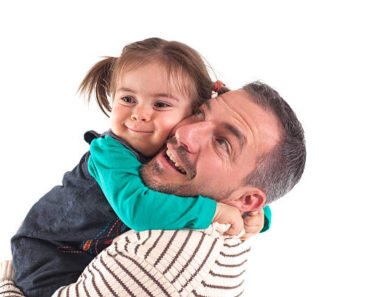Contents
- 1 Overcoming the Fear of Losing Someone: Nurturing Mental Well-being
- 2 The Impact of Fear of Losing Someone on Mental Health
- 3 Methods for Overcoming the Fear of Losing Someone
- 4 Building Resilience and Self-Compassion
- 4.1 How does the fear of losing someone impact a person’s mental health and well-being?
- 4.2 Are there any strategies or techniques that can help individuals cope with the fear of losing someone in a healthy way?
- 4.3 What are some signs or symptoms that indicate someone may be experiencing an unhealthy level of fear related to losing someone, and how can they seek support or treatment?
- 4.4 Related Posts

Have you ever felt a knot of anxiety tighten in your chest at the fear of losing someone you love? It’s a fear that can grip us all – the paralyzing dread of a loved one being gone. This constant worry can take a toll on our mental well-being. But what if we told you there are ways to manage this fear and build stronger, more resilient relationships? In this article, we’ll delve into the common causes of the fear of losing someone, its impact on our mental health, and explore effective strategies to cope with this uncertainty. Join us on a journey towards understanding and overcoming this fear, so you can live with confidence and build healthier connections with the people who matter most to you.
Overcoming the Fear of Losing Someone: Nurturing Mental Well-being
Losing someone close to us can be an incredibly difficult and painful experience. The fear of losing someone we care about can cause intense anxiety and stress, impacting our mental well-being. It is essential to acknowledge and address these fears to nurture our mental health.
One way to overcome the fear of losing someone is by practicing self-care and self-compassion. Engaging in activities that bring joy and fulfillment can help build emotional resilience. Taking time for ourselves, whether it’s through hobbies, mindfulness, or seeking professional help, promotes a healthy mindset.
Building a strong support system is another crucial aspect of nurturing mental well-being amidst the fear of losing someone. Surrounding ourselves with individuals who understand and empathize with our struggles can provide comfort and reassurance during challenging times. Sharing our fears and concerns with loved ones can alleviate some of the emotional burden we may carry.
Developing coping mechanisms is vital to managing the fear of losing someone. This may include therapy, journaling, or engaging in relaxation techniques such as deep breathing exercises or meditation. Finding healthy ways to express our emotions and process grief can help prevent overwhelming feelings from negatively impacting our mental health.
It is essential to remind ourselves that loss is a part of life, and while it can be devastating, it does not define our worth or happiness. Focusing on gratitude and cherishing the time we have with loved ones can help shift our mindset towards appreciation rather than fear.
Confronting the fear of losing someone is a journey, not a destination. By prioritizing self-care, fostering strong support systems, and building healthy coping mechanisms, we can transform this fear from a suffocating grip to a gentle reminder to cherish the present. Remember, embracing life with open arms doesn’t erase the fear, but it allows joy and love to bloom alongside it. Take a deep breath, lean on your support system, and step forward with newfound resilience. The strength to navigate uncertainty lies within you.
The Impact of Fear of Losing Someone on Mental Health

Have you ever felt constant anxiety about losing someone you love? This fear, also known as fear of abandonment, can have a profound impact on our well-being. It often whispers a destructive message: “I’m not worthy of love, and eventually everyone will leave.” This belief fuels a cycle of anxiety, insecurity, and low self-esteem, sometimes even leading to depression. People struggling with this fear might become overly reliant on their relationships, constantly seek reassurance, or even push loved ones away through self-sabotaging behaviors – all in a desperate attempt to avoid the dreaded abandonment. However, the good news is that by acknowledging and confronting this fear, we can break free from its grip and cultivate healthier, more secure connections.
Methods for Overcoming the Fear of Losing Someone
Cognitive-Behavioral Therapy (CBT): A Path Towards Healing
One effective method for overcoming the fear of losing someone is through cognitive-behavioral therapy (CBT). CBT aims to identify and challenge negative thought patterns and beliefs that contribute to this fear. Through therapy sessions, individuals can learn to reframe their thoughts, develop healthier coping mechanisms, and build a stronger sense of self-worth. Additionally, CBT techniques can help individuals become more self-reliant and tolerant of uncertainties, reducing the intensity of their fear and improving their overall mental well-being. CBT can be a transformative tool in overcoming the fear of losing someone.
Building Resilience and Self-Compassion
Another way to address the fear of losing someone is by cultivating resilience and self-compassion. Recognizing that everything in life is impermanent and that change is inevitable can help individuals find inner strength. It’s essential to practice self-care, engage in activities that bring joy and fulfillment, and surround oneself with a supportive network of loved ones. Developing self-compassion is also crucial, as it allows individuals to acknowledge and validate their emotions without judgment or self-criticism. By building resilience and self-compassion, individuals can face the fear of losing someone with greater emotional stability and mental well-being. Embracing impermanence and nurturing emotional strength are vital aspects of overcoming this fear.
How does the fear of losing someone impact a person’s mental health and well-being?
The fear of losing someone can have a significant impact on a person’s mental health and well-being. It can trigger intense feelings of anxiety, sadness, and uncertainty. When we are attached to someone emotionally, the thought of losing them can be incredibly distressing.
This fear can lead to heightened levels of stress as individuals constantly worry about the well-being of their loved ones. They may experience difficulty concentrating, disrupted sleep patterns, and changes in appetite. The constant fear of losing someone can also negatively impact relationships, as individuals may become overly protective or possessive while trying to prevent any potential loss.
In some cases, the fear can develop into an unhealthy attachment or codependency, where individuals rely heavily on others for their sense of identity and self-worth. This can further exacerbate anxiety and insecurity when faced with the possibility of losing that person.
Additionally, the fear of losing someone can affect overall mental well-being. It may lead to feelings of depression, low self-esteem, and a sense of helplessness. The constant worry and anticipation of loss can consume a person’s thoughts and energy, making it difficult for them to engage in daily activities and enjoy life to the fullest.
It is essential that people experiencing this fear to seek support, whether through therapy, counseling, or talking to a trusted friend or family member. By addressing and exploring these fears, people can work towards developing healthier coping mechanisms and finding a sense of peace and security within themselves.
Are there any strategies or techniques that can help individuals cope with the fear of losing someone in a healthy way?
Absolutely! There are several strategies and techniques that can help individuals cope with the fear of losing someone in a healthy way. Here are a few:
Self-Awareness and Reframing:
- Identify the Root Cause: Explore the underlying reasons behind the fear. Did you experience abandonment in the past? Do you have low self-esteem? Understanding the root cause can help address the core issue.
- Challenge Negative Beliefs: Recognize and challenge the negative thoughts that fuel your fear. Are your beliefs about being unlovable or everyone leaving true?
- Focus on Gratitude: Practice gratitude for the time you have with your loved ones. Appreciate their presence and the joy they bring to your life.
Building Healthy Relationships and Coping Mechanisms:
- Secure Attachment: Strive for secure attachment styles in relationships. This involves open communication, trust, and emotional availability.
- Healthy Communication: Practice open and honest communication with your loved ones. Express your fears and anxieties in a constructive way.
- Focus on the Present: Live in the present moment and enjoy the time you have together. Don’t dwell on worst-case scenarios.
- Mindfulness and Relaxation Techniques: Practice mindfulness meditation or relaxation techniques like deep breathing and progressive muscle relaxation to manage anxiety.
- Building a Support System: Create a strong support system of friends, family, or a therapist. Talking to someone you trust can be a great way to manage your fear.
- Self-Care: Prioritize self-care practices that promote mental and physical well-being. This includes getting enough sleep, eating healthy, and exercising regularly.
Remember, be patient with yourself and celebrate your progress. If the fear becomes overwhelming or significantly impacts your daily life, seeking professional help from a therapist can be very beneficial.
Signs or symptoms that indicate someone may be experiencing an unhealthy level of fear related to losing someone can include:
1. Excessive worrying: Constantly fearing the worst-case scenario or constantly thinking about losing their loved ones.
2. Physical symptoms: Panic attacks, shortness of breath, increased heart rate, trembling, or sweating when thinking about losing someone.
3. Avoidance: Avoiding situations or activities that may remind them of losing someone.
4. Difficulty concentrating: Finding it hard to focus on daily tasks due to intrusive thoughts and worries about losing someone.
5. Changes in behavior: Social withdrawal, irritability, or extreme clinginess to their loved ones.
Seeking support or treatment:
1. Talk to a trusted person: Share your fears and concerns with someone supportive, such as a close friend or family member, who can provide comfort and understanding.
2. Therapy: Consider seeking professional help from a therapist or counselor who specializes in anxiety or grief-related issues. They can help you develop coping strategies and address the underlying causes of your fear.
3. Support groups: Joining a support group for individuals who have experienced similar losses can provide a sense of community and understanding.
4. Self-care: Engage in activities that promote relaxation and relieve stress, such as exercise, mindfulness, or hobbies that bring joy.
5. Medication: In some cases, medication prescribed by a psychiatrist may be helpful in managing anxiety related to fear of loss.
Remember, reaching out for support is a sign of strength, not weakness. There are resources available to help you navigate the fear of losing someone loved. This fear, while deeply ingrained, doesn’t have to control you. By addressing it through therapy, fostering open communication, and practicing self-care, you can build resilience and find peace in the present. Let’s choose to cherish the moments we have, acknowledging the fear but not letting it define our relationships or our joy.







